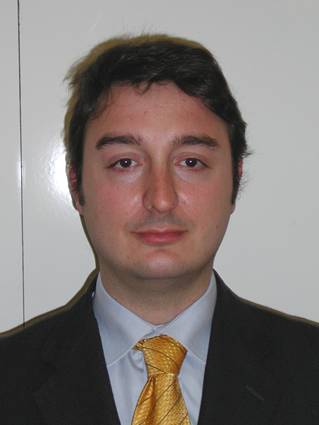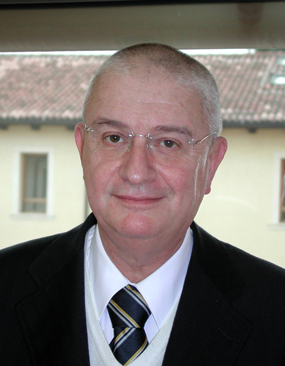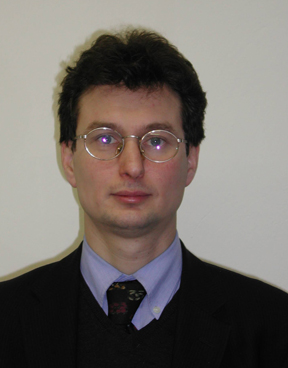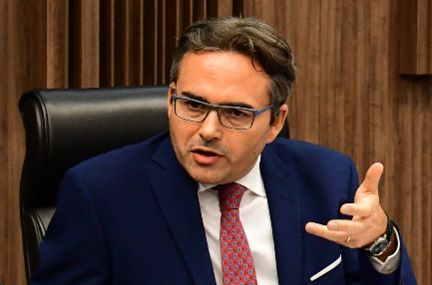Studying at the University of Verona
Here you can find information on the organisational aspects of the Programme, lecture timetables, learning activities and useful contact details for your time at the University, from enrolment to graduation.
Academic calendar
The academic calendar shows the deadlines and scheduled events that are relevant to students, teaching and technical-administrative staff of the University. Public holidays and University closures are also indicated. The academic year normally begins on 1 October each year and ends on 30 September of the following year.
Course calendar
The Academic Calendar sets out the degree programme lecture and exam timetables, as well as the relevant university closure dates..
| Period | From | To |
|---|---|---|
| 1° Periodo di lezioni | Oct 1, 2013 | Dec 13, 2013 |
| Periodo riservato ad eventuali recuperi di lezioni - dicembre 2013 | Dec 14, 2013 | Dec 17, 2013 |
| 2° Periodo di lezioni - febbraio/aprile | Feb 11, 2014 | Apr 14, 2014 |
| 2° Periodo di lezioni - aprile/maggio | Apr 23, 2014 | May 6, 2014 |
| Periodo riservato ad eventuali recuperi di lezioni - maggio 2014 | May 7, 2014 | May 9, 2014 |
| Session | From | To |
|---|---|---|
| Sessione straordinaria 13/14 - studenti f.c. - dicembre 2013 | Dec 18, 2013 | Dec 21, 2013 |
| 1° appello - Sessione invernale 13/14 | Jan 7, 2014 | Jan 13, 2014 |
| 2° appello - Sessione invernale 13/14 | Feb 4, 2014 | Feb 10, 2014 |
| Sessione straordinaria 13/14 - studenti f.c. - aprile 2014 | Apr 15, 2014 | Apr 17, 2014 |
| 1° appello - Sessione estiva 13/14 | May 12, 2014 | May 17, 2014 |
| 2° appello - Sessione estiva 13/14 | Jun 9, 2014 | Jun 14, 2014 |
| 3° appello - Sessione estiva 13/14 | Jul 7, 2014 | Jul 12, 2014 |
| 1° appello - Sessione autunnale 13/14 | Sep 1, 2014 | Sep 6, 2014 |
| 2° appello - Sessione autunnale 13/14 | Sep 24, 2014 | Sep 30, 2014 |
| Session | From | To |
|---|---|---|
| Termine presentazione tesi di laurea - settembre 2013 | Sep 27, 2013 | Sep 27, 2013 |
| Sessione autunnale 13/14 | Oct 21, 2013 | Oct 22, 2013 |
| Termine presentazione tesi di laurea - gennaio 2014 | Jan 10, 2014 | Jan 10, 2014 |
| Sessione invernale 13/14 | Feb 3, 2014 | Feb 3, 2014 |
| Termine presentazione tesi di laurea - febbraio 2014 | Feb 28, 2014 | Feb 28, 2014 |
| Sessione invernale 13/14 - marzo 2014 | Mar 24, 2014 | Mar 26, 2014 |
| Termine presentazione tesi di laurea - giugno 2014 | Jun 9, 2014 | Jun 9, 2014 |
| Sessione estiva 13/14 | Jul 3, 2014 | Jul 4, 2014 |
| Period | From | To |
|---|---|---|
| Festa di Ognissanti | Nov 1, 2013 | Nov 1, 2013 |
| Festa dell'Immacolata Concezione | Dec 8, 2013 | Dec 8, 2013 |
| VACANZE DI NATALE | Dec 22, 2013 | Jan 6, 2014 |
| VACANZE DI PASQUA | Apr 18, 2014 | Apr 22, 2014 |
| Festa della Liberazione | Apr 25, 2014 | Apr 25, 2014 |
| Festa dei lavoratori | May 1, 2014 | May 1, 2014 |
| Festa del S. Patrono S. Zeno | May 21, 2014 | May 21, 2014 |
| Festa della Repubblica | Jun 2, 2014 | Jun 2, 2014 |
Exam calendar
Exam dates and rounds are managed by the relevant Law Teaching and Student Services Unit.
To view all the exam sessions available, please use the Exam dashboard on ESSE3.
If you forgot your login details or have problems logging in, please contact the relevant IT HelpDesk, or check the login details recovery web page.
Should you have any doubts or questions, please check the Enrollment FAQs
Academic staff
 giovanni.alberti@univr.it
giovanni.alberti@univr.it
 mariacaterina.baruffi@univr.it
mariacaterina.baruffi@univr.it

Dalla Massara Tommaso
 tommaso.dallamassara@univr.it
tommaso.dallamassara@univr.it
 +39 045 8028810
+39 045 8028810
 roberto.flor@univr.it
roberto.flor@univr.it
 +39 045 8028812
+39 045 8028812
 rita.maggi@univr.it
rita.maggi@univr.it
 martina.menon@univr.it
martina.menon@univr.it

Patrono Paolo
 paolo.patrono@univr.it
paolo.patrono@univr.it
 +39 045 8028813
+39 045 8028813
 federico.reggio@univr.it
federico.reggio@univr.it
 lorenzo.salvatore@univr.it
lorenzo.salvatore@univr.it
Strano Silvana
 silvana.stranoligato@univr.it
silvana.stranoligato@univr.it
 +39 045 8028856
+39 045 8028856
 claudio.tomazzoli@univr.it
claudio.tomazzoli@univr.it
 alice.valdesalici@univr.it
alice.valdesalici@univr.it
 marcella.veronesi@univr.it
marcella.veronesi@univr.it

Zini Francesco
 francesco.zini@univr.it
francesco.zini@univr.it
 +39 045 8028883
+39 045 8028883
Study Plan
The Study Plan includes all modules, teaching and learning activities that each student will need to undertake during their time at the University.
Please select your Study Plan based on your enrollment year.
1° Year
| Modules | Credits | TAF | SSD |
|---|
Principles of economics
Roman Law Institutions
History of Medieval and Modern Law
2° Year activated in the A.Y. 2014/2015
| Modules | Credits | TAF | SSD |
|---|
Un insegnamento a scelta tra i seguenti3° Year activated in the A.Y. 2015/2016
| Modules | Credits | TAF | SSD |
|---|
Terminologia giuridica di una lingua straniera4° Year activated in the A.Y. 2016/2017
| Modules | Credits | TAF | SSD |
|---|
Un insegnamento a scelta tra i seguenti5° Year activated in the A.Y. 2017/2018
| Modules | Credits | TAF | SSD |
|---|
Cinque insegnamenti a scelta tra i seguenti| Modules | Credits | TAF | SSD |
|---|
Principles of economics
Roman Law Institutions
History of Medieval and Modern Law
| Modules | Credits | TAF | SSD |
|---|
Un insegnamento a scelta tra i seguenti| Modules | Credits | TAF | SSD |
|---|
Terminologia giuridica di una lingua straniera| Modules | Credits | TAF | SSD |
|---|
Un insegnamento a scelta tra i seguenti| Modules | Credits | TAF | SSD |
|---|
Cinque insegnamenti a scelta tra i seguentiLegend | Type of training activity (TTA)
TAF (Type of Educational Activity) All courses and activities are classified into different types of educational activities, indicated by a letter.
Type D and Type F activities
Modules not yet included
CRISIS AND INSOLVENCY PROCEEDINGS LAW (2016/2017)
Teaching code
4S00350
Teacher
Coordinator
Credits
6
Also offered in courses:
- CRISIS AND INSOLVENCY PROCEEDINGS LAW of the course Bachelor’s degree in Law Services
Language
Italian
Scientific Disciplinary Sector (SSD)
IUS/15 - CIVIL PROCEDURAL LAW
Period
2° periodo di lezioni - aprile/maggio 2017, 2° periodo di lezioni - febbraio/aprile 2017
Learning outcomes
Bankrupcty law studies the business crisis through bankruptcy in the event of insolvency or through contracts and agreements to solve the crisis. The Bankruptcy Act (decree No. 267 of 1942) has been changed by numerous reforms designed to make bankruptcy proceedings more modern and flexible. The study of the subject matter is completed with the discipline on the composition of the crisis of over-indebtedness and liquidation of the debtor's property when the debtor cannot be declared bankrupt, under Law n. 3 of 2012.
Program
The function of bankrupcty and the general characteristics of the proceeding.
The prerequisites.
Jurisdiction and standing for the declaration of bankruptcy. The bankruptcy decision and the means of appeal.
Organs: The Bankruptcy Court; the delegate Judge (giudice delegato); the Trustee (curatore); the creditors’ committee.
The effects of bankruptcy on the debtor and the creditors. Clawback actions. The fate of existing legal relationships.
Valuation of the debtor’s liabilities.
The liquidation and distribution of assets.
The closure of the bankruptcy. The bankruptcy agreement.
Liberation from debts
The Companies' bankrupcty.
The negotiated solutions to the crisis. The arrangement with creditors.
The composition of the indebtedness crisis and the liquidation of the property of the debtor that cannot be declared bankrupt.
De iure condendo perspectives.
Examination Methods
Oral examination. Only attending students will have the option to take at the end of the course and on a date before the one set for the oral examination a test (preappello), written or oral.
Teaching materials e documents
-
 PROGRAMMA E TESTI CONSIGLIATI
(msword, it, 25 KB, 27/07/16)
PROGRAMMA E TESTI CONSIGLIATI
(msword, it, 25 KB, 27/07/16)
Career prospects
Module/Programme news
News for students
There you will find information, resources and services useful during your time at the University (Student’s exam record, your study plan on ESSE3, Distance Learning courses, university email account, office forms, administrative procedures, etc.). You can log into MyUnivr with your GIA login details: only in this way will you be able to receive notification of all the notices from your teachers and your secretariat via email and also via the Univr app.
Language skills
Graduation
Internships
Internships are aimed at enabling students to gain direct knowledge of the world of work and to acquire specific professional skills.
Internships are carried out under the responsibility of an individual lecturer, and can be carried out in professional firms, public administration bodies and companies recognised by the University of Verona.
Any CFU credits gained by doing internships will be recognised and recorded by the University in accordance with the relevant University regulations in force (Regolamento d’Ateneo per il riconoscimento dei crediti maturati negli stage universitari).
For further information on internships, please go to: https://www.univr.it/it/i-nostri-servizi/stage-e-tirocini.












































